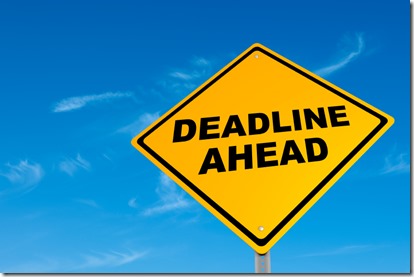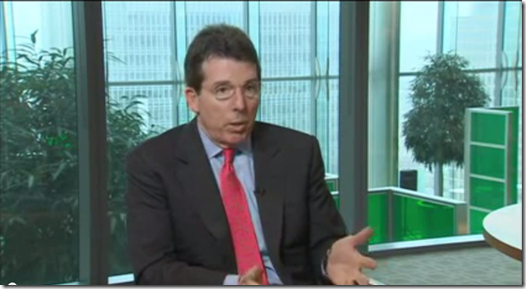Question Of The Week: Is This A Smart Or Risky Strategy?
If you’re a regular reader of the blog, you know that I generally advise spokespersons to return a call well before a reporter’s deadline.
Returning calls from reporters on the early side—before they begin writing their stories—can give you influence over the way they view your topic. Your early conversations may lead them to examine angles they hadn’t previously considered and speak with other sources you mentioned. All of that, in turn, may lead to more favorable coverage.
If, on the other hand, you wait to return a reporter’s call until just before his or her deadline, you may reduce your ability to shape the story. By that late point, the journalist has probably already completed 95 percent of the story and will just plug your quote into a small hole left open for you.
But here’s a question: Are there times when you might want to reduce your role in the story—and strategically return a call for a 5:00 p.m. deadline at 4:58 p.m.?
Waiting to return a journalist’s call until just before the deadline could help you in at least two ways: Depending on the circumstance, it could minimize your role in an unfavorable story; and it prevents reporters from being able to write or say that you had “no comment,” a damning phrase that makes you look guilty.
Here are my questions for you:
Have you ever used this tactic? If so, what were the circumstances? Did it work? If you haven’t, would you consider doing so?
I’ll compile a few of your responses for an upcoming article—so if you’d like some free publicity, please leave a web address along with your comment.
Please leave your thoughts in the comments section below!


Brad,
Great question because it certainly makes you think. I would think that regardless of the wisdom of the strategy, you always run a risk with it. I agree with the potential benefits in the two possible outcomes you listed in the post. But there is a risk of being left out anyway after waiting so long, or the reporter decides you are hiding something, feels played and then adjusts his or her story toward that angle.
I see the first risk more likely than the last as most reporters I know would say that’s not how they work and it would unnecessarily burn a decent source.
So I call it a risk — but argue that risks are strategies. You need to weigh the risks against the possible benefits and drawbacks, the personality and professionalism of the reporter you are working with, and what outcome you are trying to achieve. From that risk assessment (sorry for sounding like a lawyer or MBA), you can make the best possible decision. How smart or risky the strategy was probably depends on the outcome, does it not?
I would also suggest it works both ways, since reporters working a juicy gotcha story can wait until the last minute to call you for a quote or information in order to put you off-message and limit your options for a reply that meets their deadline. Again, not certain that it’s a common practice, but felt it worthy of mentioning. Didn’t Denzel Washington do something like that in “The Pelican Brief”? ;-D
John,
Great comment, and totally agree that “risks are strategies.”
You’re also exactly right that this works in both directions. When my firm still did media relations (we stopped to focus on training in 2010, but our firm’s name remains “Phillips Media Relations”), I experienced the “reporter-calling-within-minutes-of-deadline” strategy numerous times. Typically, they did that so we couldn’t have a lot of time to craft a response with attorneys and other parties. But in my experience, it was extremely unfair, especially when the assumptions underlying a reporter’s piece were faulty.
Thanks for the comment,
Brad
All of media relations, especially in crisis situations, is based on an understanding of who your client is in the reporter’s “big picture” and their importance to the story being filed. PR pros must then govern themselves, their statements and actions accordingly to secure the desired results for those they represent.
In my experience, reporters will often claim a deadline time that is often earlier than the actual deadline. This happens for a variety of reasons, one of which is to thwart the ‘4:58 crowd’ from working the system. Since you never really know if the deadline stated is the true deadline, it has always been my recommendation to position the appropriate message(s) as you feel is best, regardless of timing. If your goal is to keep your client’s connection to the story to a minimum, keep your comments short and to the point and don’t have further conversation/correspondence about the situation.
I’ve always gone with a customer service-flavored model of media relations. I look at the reporters and editors I work with as customers. I strive to provide them with a level of access and information that is befitting of a customer receiving any other service. Providing them with information right before “closing time” strikes me as bad customer service.
Like the Friday afternoon “news dump,” the 4:58 callback will only detract from your relationship with the reporter. I would assert that it might even lead to a bit of a bulls eye being lightly painted on your organization.
Responding sooner rather than later affords one the opportunity to share messaging at a more leisurely pace (not to mention in a time frame before the editors are getting antsy and asking the reporter more questions)…and it strengthens media relations by way of strong customer service.
Deadlines are not what they used to be. There was a time when if you missed a deadline, you lost a day. With the exception of stories in print or highly produced TV segments, most stories are being updated several times a day. As a result, waiting until deadline hoping to avoid a follow up question will not generally be effective for stories that are posted and updated online. It’s easy for a reporter to add copy saying the company “refused to answer x.” But that said, there is at least one situation in which there is little advantage in answering early. If, because of legal complications or the facts in the story, your company will not be in a position to go beyond a short statement — then there is little reason to answer early. Giving time for follow up doesn’t help you. And sending that statement early would simply give the reporter more time to shop your quote around to others to get their reaction to it. Even in that instance, a smart may reporter may pad his or her deadline so that they have time to get further reaction. Of course the best situation is to have developed enough of a relationship with the reporter that you can have an ongoing dialogue on background to help them understand the story — or your side of it — so that when you do offer your words on the record, the journalist has the best context possible for it.
I would agree with Bill that you only do it when there’s not much you can say, and would add that you only do it with a reporter you know or suspect to be hostile. If you know the reporter to be fair or even friendly, you return the call as soon as possible, to maintain good relations.
I would also add that delaying can backfire. When I first started doing PR at a college, I didn’t have the information to provide a news director who called about a controversy. I pledged to get back to her when i had somebody for her to talk to, but rather than wait s sent a reporter out to talk to anybody she could find. That ended up working out for us (the person the reporter found was the person I was trying to reach to get on camera, and he said exactly what I would have hoped he said). But it could just as easily have spun out of control at that point.